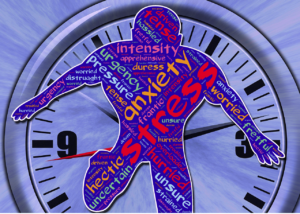 We often hear adults telling children, “Use your words…” or “Just tell me how you feel!” True, children don’t always have a very expansive vocabulary (especially about emotions) but the reality is adults could improve their emotional language, as well! Feelings have a bad reputation of getting out of control and ruling us. But emotions are actually our friends: they help give us information about how we are thinking and reacting. The more we understand emotions, the more we can control them and use them as ‘personal informants’ instead of ‘the enemy’.
We often hear adults telling children, “Use your words…” or “Just tell me how you feel!” True, children don’t always have a very expansive vocabulary (especially about emotions) but the reality is adults could improve their emotional language, as well! Feelings have a bad reputation of getting out of control and ruling us. But emotions are actually our friends: they help give us information about how we are thinking and reacting. The more we understand emotions, the more we can control them and use them as ‘personal informants’ instead of ‘the enemy’.
Have you ever tried to explain how you felt about something, but you just didn’t feel like you were getting your message across? Instead, you walked away a bit more frustrated or annoyed. Perhaps it was because you weren’t identifying your true emotional reaction to the event.
Base Emotions
I’ve done many presentations where I ask people to help me list emotions. Happy, Sad, Anger and Fear are often in the first 5. “They’re the most common…the base emotions” which is correct. But they aren’t the only emotions out there. For example:
- Sometimes when we say we are sad, it’s actually loneliness or shame we feel.

- Grief, along with sadness, can evoke a sense of being fragile.
- Sometimes that fear is actually feeling weak or helpless.
- What other examples can you think of?
In a therapeutic setting, I’ve had many people say they need to “get my anxiety under control” or “manage my anger.” As noted above, I always start by making sure we know the root emotion that might be causing those feelings of anxiety or anger (or whatever). Dr Gloria Wilcox has an excellent visual called a Feeling Wheel to help us uncover what is hiding in our deeper emotional recesses. Sometimes we need to see the options available, right?
This article by Calm.com (https://www.calm.com/blog/the-feelings-wheel) outlines beautifully why this is important: by identifying our deeper emotions, we gain more self-understanding, more ability for self-expression, and a more accurate path towards communicating with others and ourselves.
Expanding Emotional Language
 Are you ready to start expanding your emotional language?
Are you ready to start expanding your emotional language?
- Think of a time you had a strong emotional reaction to something… Past or present…
- Remember the situation and what you initially felt… What was the emotion?
- Now go back to the feelings wheel and look at other emotional options…
- What else can fit that moment (besides the primary emotion you originally felt)? It may be related to the initial emotion, or in a different ‘category’…
- Do this for as many memories or experiences as you feel comfortable.
By no means does this mean that if you have feelings of (for example) remorse or insecurity, you need to run to a therapist. But if you find a common emotional theme in your life and want to explore it, therapy can help. Or if you are especially bothered by your behavioral patterns, maybe getting in touch with a therapist would be a way for you to learn to use your words, not your behaviors. 😊

